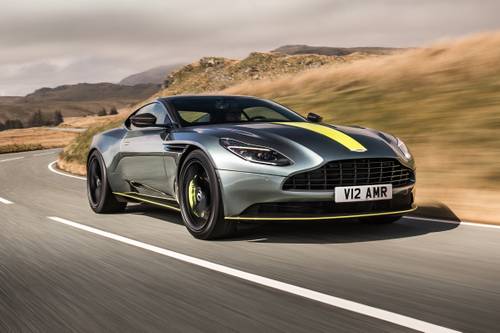Key points:
- Aston Martin Lagonda has been downgraded by Citi
- The change is from buy to neutral
- The way such ratings really work neutral means sell
- Aston Martin Shares Down 30% On Week – Is Britishvolt The Turn?
Aston Martin Lagonda (LON: AML) shares have been downgraded by Citi from “buy” to “neutral”. The way to really read such share ratings is that neutral means sell – just as average weight means be underweight and so on. Share ratings such as this should be stepped down a notch to get the true measure of what is being said.
But that Citi says something doesn’t make Citi right, even about something like the AML share price. So, we as traders need to think through what is being said and see whether we agree or not.
Our starting point is that Aston Martin shares have been a terrible investment this past year – in fact, since the IPO. This is not purely to do with lockdown or the wider economy either. Supercar building is simply a terribly difficult market to be an independent in. The costs of development are huge and being independent means there’s no larger group – nor future long runs of cheaper cars – to carry those development costs.
Aston Martin did hive off some of those costs by teaming up with AMG, the Mercedes premium engine maker, but that still leaves the vast costs of new model development, even if not engine development.

Also Read: The Best UK Blue-Chip Companies to Invest In
The specific downgrade here is by Gabriel Adler, the analyst at Citigroup, and it’s from that previous “buy” to “neutral”. As above, we might better interpret this as being a sell advice but only if we’re appropriately cynical about analyst ratings. It’s certainly a significant change in sentiment too – the target price has moved from £29 to £10. As this is still well above today’s £8 and change Adler clearly thinks there could be some value there. It’s just that it’s a vastly smaller amount of value than he did before.
As to what we might think about it. Well, there have been well publicised problems with deliveries of the Valkyrie hypercar – but that’s a cash flow issue, not a sales one as the production run has all been sold.
The two biggest risks would seem to be the general economy, for expensive cars tend to sell better in the absence of recessions and there’s a certain thought that we’re heading into a bad such recession. But more than that there’s the Chinese market which given the omicron and covid lockdowns we might think will suffer considerably this year. The country is a major market for AML after all.
Then on top of that there’s the reception for the DBX model. This is the attempt to break out of the purely sports market into the SUV. This may or may not work of course. But given the resources committed to it Aston’s future depends to a large extent upon it.
Success with the DBX and the absence of a crippling recession may well lead to a resurgence in Aston Martin shares. But that’s what the trading decision is probably about – are those things going to be true?




